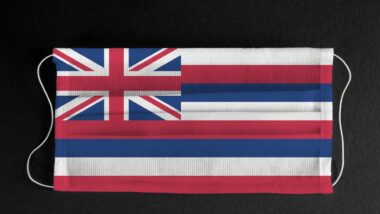Top Class Actions’s website and social media posts use affiliate links. If you make a purchase using such links, we may receive a commission, but it will not result in any additional charges to you. Please review our Affiliate Link Disclosure for more information.

Lead plaintiffs, DeShawn Briggs, Mark Pascale, and McKenna Stephens, allege that the Maricopa County Attorney’s Office and the Treatment Assessment Screening Center extort money out of those hit with marijuana charges and leave the poor unable to avoid criminal charges and conviction.
According to the plaintiffs, while marijuana diversion programs are meant to relieve the burden of a criminal charge for a minor possession offense, the attorney’s office and treatment center use Maricopa County’s program to generate revenue — $15 million between 2006 and 2016.
“In principle, the programs are ‘intended to relieve overburdened courts and crowded jails, and to spare low-risk offenders from the devastating consequences of a criminal record,’” states the marijuana diversion program class action lawsuit. “But in Maricopa County, they serve another purpose: to make money for those who operate the program.”
According to AZCentral.com, Arizona has some of the most strict marijuana laws in the country. The New York Times reports that these marijuana diversion programs, and their associated fees, are often run at the discretion of local prosecutors.
The complaint goes on to explain that the length of time and avoidance of criminal charges depends on if a person charged with a marijuana offense can pay hefty fees for the diversion program, between $950 and $1,000.
In addition, alleged the plaintiffs, marijuana diversion program participants get further nickel and dimed with $15 to $17 drug and alcohol tests required up to four times each week.
Those who cannot pay the fees are forced to remain in the program, despite meeting program requirements, alleges the marijuana diversion program class action lawsuit.
The requirements are many, say the plaintiffs, including a minimum monthly fee, and reporting up to four times a week, along with that expensive drug or alcohol test. If a participant cannot finish the program or fails to report, they can be subject to felony charges.
The plaintiffs contend that this process extorts money from those who do not have $950 to $1,000 to pay the marijuana diversion program fee at one time and exit the program within the allotted 90 days.
“Defendants enforce these policies even when they know that diversion participants are poor or even homeless, and even when they know that participants are sacrificing basic necessities to pay fees,” alleges the marijuana diversion class action lawsuit. “And indeed, Defendants have a financial incentive to enforce the policies this way—and to use the specter of termination and felony prosecution to coerce as much money from participants as they can.”
The Maricopa County Attorney’s Office and the Treatment Assessment Screening Center filed a motion to dismiss the marijuana diversion program class action lawsuit arguing that the plaintiffs have not challenged any specific policies and that those in the program should not be afforded special treatment because of their financial status.
U.S. Magistrate Judge Eric J. Markovich rejected the defendant’s arguments in their motion to dismiss.
“None of these proffered reasons explains why participants who are unable to pay the program fee within 90 days must stay on the program longer and to continue to abide by all of the program rules, rather than being allowed to complete all of the nonmonetary program requirements and set up an extended payment plan until the fee is paid off,” noted the judge’s order.
In a response to the order allowing the marijuana diversion program class action lawsuit to proceed, the Civil Rights Corps issued a statement that said, “The Maricopa County Attorney’s Office and TASC, Inc. run a program that exploits poor people in the name of rehabilitation…The court found that prosecutors and private companies cannot punish poor people because of their poverty. Nor can it impose additional onerous requirements on individuals just because of the size of their pocketbook.”
The lead plaintiffs are represented by Timothy J. Eckstein and Joshua D. Bendor of Osborm Maledon PA, and A. Dami Animashaun and Katherine Chamblee-Ryan of the Civil Rights Corps.
The Marijuana Diversion Program Class Action Lawsuit is Briggs, et al. v. Montgomery, et al., Case No. 2:18-cv-02684-PHX-JAS, in the U.S. District Court for the District of Arizona.
ATTORNEY ADVERTISING
Top Class Actions is a Proud Member of the American Bar Association
LEGAL INFORMATION IS NOT LEGAL ADVICE
Top Class Actions Legal Statement
©2008 – 2024 Top Class Actions® LLC
Various Trademarks held by their respective owners
This website is not intended for viewing or usage by European Union citizens.















13 thoughts onMarijuana Diversion Program Class Action Moves Forward
Add me : Adamjamesh83@live.com
Add me